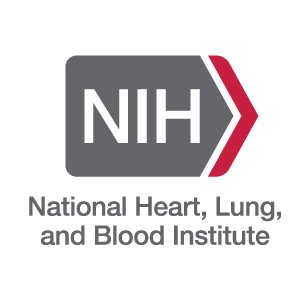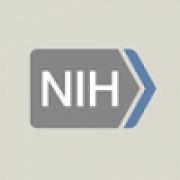Pathway Analysis
NHLBI TOPMed Fellowship Program
Friday, August 16, 2024

The NHLBI Trans-Omics for Precision Medicine (TOPMed) program announce the availability of a Fellowship opportunity focused on training in the application of novel and innovative AI/ML approaches to data-driven research problems in heart, lung, blood and sleep.
Application due date is October 29, 2024, 5:00 pm EDT
To apply, visit TOPMed Fellowship website.
NLM Extramural Program Webinar: Toward Gold Standards in Data Creation – AI Strategies to Address Data Accessibility Challenges in Biomedical Research
Wednesday, September 18, 2024
Join the National Library of Medicine (NLM) for an insightful and transformative webinar

2:00 P.M. — 4:00 P.M. EST
About the Webinar
Join the National Library of Medicine (NLM) for an insightful and transformative webinar that delves into the intersection of the work of three groundbreaking, NLM-funded researchers, each harnessing the power of artificial intelligence and machine learning to overcome significant challenges in data accessibility. Whether it's through the extraction of information from electronic health record narratives, predicting treatment outcomes from biomechanics data, or interpreting medical images, through their work, each has developed innovative strategies to minimize the need for expert intervention in the data preparation process. By providing high-quality, de-identified, annotated, and labeled datasets has resulted in shared resources of great value to the research community that can serve as benchmarks to develop, test, and improve computational methods.
This webinar is a unique opportunity for data scientists, researchers, technologists, and those curious about NLM-funded research to explore collaborative strategies for creating high-quality datasets, reducing expert burden through using innovative data processing techniques, and fostering community engagement and collaboration. It shares the latest developments in these areas and stimulates discussions on how shared methodologies can be applied across domains to expand data availability for health research. Participants will gain a deeper understanding of the role of community-driven efforts in overcoming data challenges and the importance of collaboration in achieving breakthroughs in health research
Speakers:
- Özlem Uzuner, PhD, George Mason University
- C. Karen Liu, PhD, Stanford University
- Lee Cooper, PhD, Northwestern University
Announcing the 2024 DataWorks! Prize – Showcase Your Innovative Data Reuse Projects!
Monday, August 5, 2024

We're excited to announce the launch of the 2024 DataWorks! Prize, an initiative between the Federation of American Societies for Experimental Biology (FASEB) and the National Institutes of Health (NIH) recognizing research teams for innovative secondary analysis and data reuse that advance human health. This two-phase challenge encourages participants to propose and execute impactful projects utilizing data from the NIH-funded Generalist Repositories Ecosystem Initiative (GREI).
Key Dates:
- Challenge Launch: August 5, 2024
- Phase One Submissions: August 14 – October 23, 2024
- Phase Two Submissions: January 15 – June 14, 2025
Successful teams will receive cash prizes and the opportunity to showcase their work through future DataWorks! Program events. Don't miss this chance to contribute to groundbreaking research and share your findings with the scientific community! For more information, visit herox.com/dataworks.
RADx Data Hub Further Enhances COVID-19 Data Access and Analysis Capabilities
Tuesday, August 13, 2024
Data from the COVID-19 pandemic can enable greater understanding of disease spread, rapid global emergency response efforts, health disparities, disease forecasting, and beyond. However, researchers need to be able to easily access and analyze this data to build more efficient and effective processes for the future. The National Institutes of Health (NIH) Rapid Acceleration of Diagnostics (RADx®) Data Hub is allowing researchers to do just that.
The recently upgraded RADx Data Hub has emphasized design and functionality changes that streamline support for researchers hoping to access data that can help inform responses to future global emergencies and improve our understanding of healthcare and access disparities.
The NIH RADx Data Hub, which provides access to RADx investigator-collected datasets, is a key component of the NIH RADx Initiative. Since the RADx Data Hub’s launch in December 2022, it has supported de-identified, curated, and harmonized secondary COVID-19 dataset use, while also providing tools to analyze infection and mortality disparities across communities and settings.
These functions have helped researchers understand many aspects of the pandemic, but the newly enhanced RADx Data Hub (https://radxdatahub.nih.gov/) provides researchers more dynamic access to explore data from over 150 RADx Radical, RADx-Underserved Populations, RADx-Tech, and RADx Digital Health Technologies studies. Researchers also gain access to a more robust analytics platform, with tools such as Jupyter notebooks, R, Python, and SAS Viya.
Important new capabilities allow researchers to:
- Perform study searches and discover study overviews without having to create an account or log in
- View extensive and informative metadata for research planning
- Request access to advanced analytical tools such as Data Wrangler and SAS Viya
- Access a more streamlined, cloud-based analytics workbench
- Use a more intuitive interface with extensive documentation for audiences with differing levels of experience
- Download approved data without creating a cloud-based workbench
Researchers can now use powerful features to reimagine the pandemic data landscape, forever changing what we can do and learn with existing RADx data, forging new collaborations and build a community to accelerate scientific research and innovation. This data collection and built-in tools will inform future work on global pandemic concerns (for COVID and beyond), improving our ability to responds to morbidity and mortality disparities in underserved and vulnerable populations and innovate on existing and new testing technologies and digital health solutions.
I hope new researchers may be interested in using this powerful platform and joining the RADx Data Hub Community. I encourage you to share this news with anyone studying COVID-19 or beyond. You can learn more about the RADx Data Hub by registering for Office Hours, signing up for the newsletter, and reaching out to the Data Hub Partners for a demo of the newest Data Hub features.
Susan Gregurick


